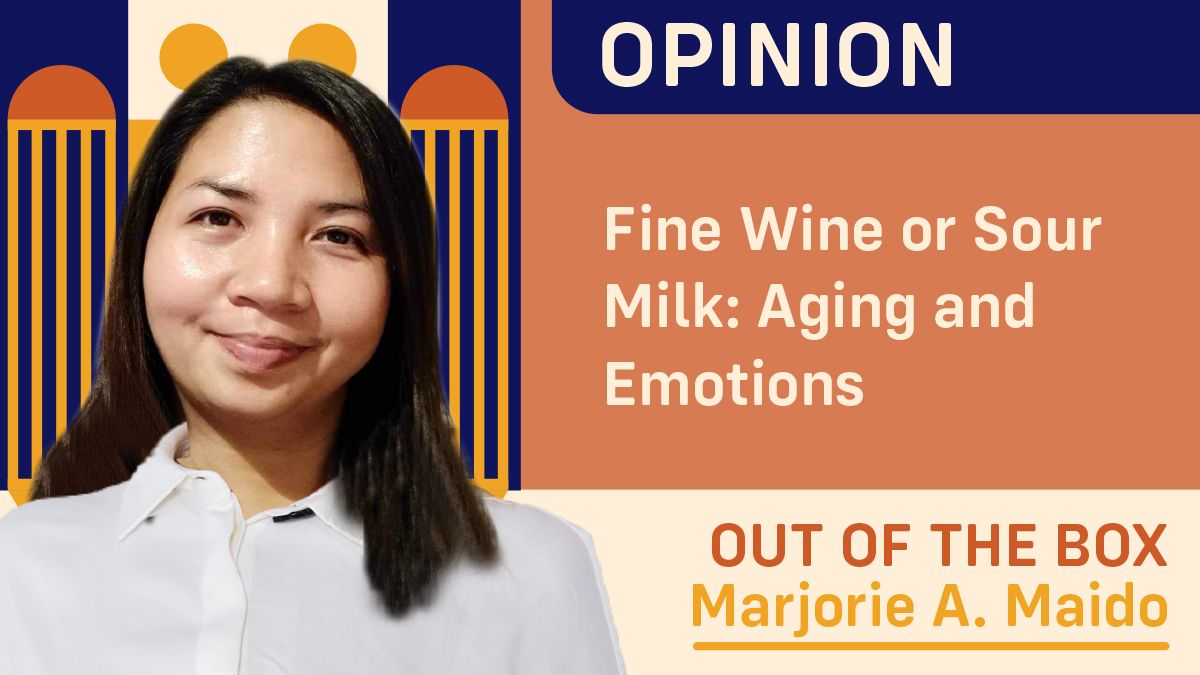I find myself compelled to write about emotions and aging as I regularly receive messages from students ranting about how their teachers’ frequent emotional outbursts affect their mental health. I would often tell students to do what is required of them, as teachers also feel frustrated when they see their students submitting mediocre outputs. They need to understand that teachers often confront a multitude of challenges, from overwhelming academic and administrative work to daunting preparation for classroom teaching.
With aging, I wonder whether we develop patterns. Are we supposed to age like fine wine? Will we evolve from fierce hearts to friendly souls when we reach the age of 60? Or are we to expect to age like sour milk, growing more bitter and irritable each passing day?
Laura Carstensen’s socioemotional selectivity theory posits that older adults become more selective of their social networks, and are more likely to engage in more meaningful relationships that are emotionally rewarding compared to younger people who prioritize expanding social networks to pursue career-oriented goals. This selectivity affects older individuals positively, making them grow wiser with the years. In addition, the accumulation of life experiences that challenge us emotionally, allows us to learn virtues like patience, resilience, and empathy. Many adults, therefore, develop a better understanding of their own emotions and those of others, leading to a more stable emotional regulation.
However, aging has its rough patches. Some may agree that it is indeed sour milk. Aging individuals confront health issues, cognitive decline, and social isolation, that negatively affect their emotional well-being.
Cognitive decline manifested by memory loss, and speaking about the same thing repetitively, often leads to misunderstanding. I remember when my eldest son complained about the “nagging” attitude of his grandfather, reminding him repetitively to be home before eight in the evening, and how he would avoid talking to his grandfather several times. As he became more mature, he understood that it was not nagging, but a natural phenomenon that happens to many aging individuals.
And yet, Dr. Ellen Langer informs us that age is just a mindset. In her 1979 “Counterclockwise” experiment, she and her team accompanied eight elderly men who were in their 70s and went to a retreat house where they relived the year 1959 when these men were twenty years younger. By the end of the week, the men displayed several physical improvements (e.g., posture, dexterity, flexibility, hearing) and improved cognitive abilities. She suggests that by shifting our mindsets, we can reverse aging and its detrimental effects.
In conclusion, aging can be a stage of emotional growth and stability, or it can be challenging. But by understanding the factors that contribute to our emotional well-being will we be able to address them. Whether one becomes fine wine or sour milk, is still within his or her control.
#WeTakeAStand #OpinYon #OpinYonColumn #ColumnbyMarjorieMaido #OutOfThBox

